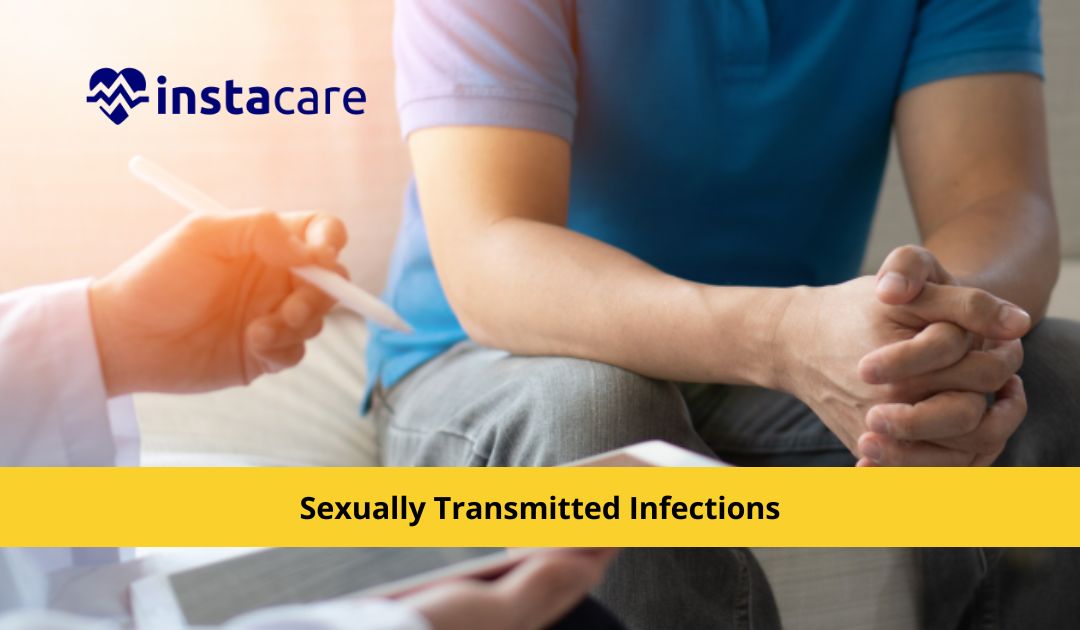Sexually Transmitted Infections (STIs) encompass a wide
range of infections transmitted through sexual contact. The importance of
comprehending these infections stems from their widespread occurrence and the
crucial role of awareness in halting their transmission.
Types Of Sexually Transmitted Infections
Viral Infections
Viral STIs, including HIV/AIDS, herpes, and HPV, pose unique
challenges due to their lifelong effects and transmission methods.
Bacterial Infections
Bacterial STIs like gonorrhea, syphilis, and chlamydia can
be treated with antibiotics but require early detection to prevent
complications.
Parasitic Infections
Less common, yet impactful, parasitic STIs like
trichomoniasis and pubic lice require prompt diagnosis and treatment.
Common Symptoms Of STIs
Symptoms of STIs encompass a wide spectrum, ranging from
inconspicuous or entirely asymptomatic to severe manifestations. Familiarity
with these signs—such as genital sores, unusual discharge, pain during
urination, or discomfort in the genital area—is paramount for timely
identification and subsequent treatment. Acknowledging these symptoms
facilitates early intervention, averting potential complications and aiding in
the containment of STI spread.
Transmission And Prevention
Understanding the diverse modes of STI transmission and
adopting effective preventive measures play pivotal roles in stemming their
proliferation within communities. Knowledge about transmission methods, including
sexual contact, skin-to-skin contact, or exposure to infected bodily fluids,
empowers individuals to employ preventive strategies. Consistent use of
barriers like condoms, regular testing, and open discussions regarding sexual
health significantly contribute to reducing STI transmission rates.
Diagnosis Of STIs
The timely and comprehensive testing for STIs serves as a
cornerstone in their management. Swift identification through diagnostic
procedures not only facilitates prompt treatment but also mitigates the risk of
further transmission. Early diagnosis empowers individuals to seek appropriate
medical care, thereby preventing the escalation of STI-related complications
and safeguarding public health.
Treatment Options
Treating STIs involves the availability of medications and
therapeutic interventions. However, challenges arise due to emerging drug
resistance and disparities in accessing healthcare services. Overcoming these
hurdles is essential to ensure effective treatment and prevent the proliferation
of infections, highlighting the need for innovative approaches in managing
STIs.
Impact And Complications
Untreated STIs can precipitate enduring health concerns and
severe complications. Emphasizing the significance of timely intervention,
neglecting treatment can lead to chronic health issues, reproductive
complications, and an increased risk of transmitting infections. Timely and
adequate medical attention is crucial to curtail the long-term repercussions of
STIs on individual health and public well-being.
STIs And Relationships
In relationships, fostering open communication and
understanding plays a pivotal role in preventing and managing STIs. Honest
discussions about sexual health, mutual respect, and joint commitment to
preventive measures create a supportive environment. This proactive approach
not only mitigates the risk of transmission but also strengthens the foundation
of trust and care within relationships.
Public Health Measures
Government-led initiatives and targeted awareness campaigns
play a pivotal role in addressing the impact of STIs on a societal scale. These
measures encompass comprehensive programs aimed at education, healthcare
accessibility, and fostering community engagement to curb the spread of
infections.
Stigma And Societal Views
Challenging prevalent misconceptions surrounding STIs and
establishing robust support systems are fundamental in combating the stigma
associated with these infections. Empathy, education, and open dialogue help
dismantle stigma, creating a more supportive environment for affected
individuals to seek care and support without fear of judgment.
Coping And Support
The mental health ramifications of coping with an STI are
profound, underscoring the necessity of accessible support resources. Offering
psychological support, counseling services, and informational guidance aids
individuals in navigating the emotional challenges associated with diagnosis
and treatment.
Prevalence And Statistics
Grasping the global prevalence and emerging trends of STIs
is pivotal in crafting effective preventive strategies. Understanding regional
disparities, prevalence rates, and shifts in infection patterns empowers
healthcare systems and policymakers to tailor interventions accordingly.
Risks And Vulnerable Groups
Recognizing and tackling the elements that contribute to
vulnerability is pivotal in lowering STI prevalence. Focused actions aimed at
high-risk groups, including youth, marginalized communities, and those with
restricted healthcare access, play a critical role in diminishing transmission
rates and enhancing general health outcomes.
Educational Approaches
Tailoring educational initiatives to diverse demographics is
instrumental in fostering awareness and prevention. Customized approaches,
including comprehensive sex education, community outreach, and accessible
information dissemination, empower individuals to make informed choices and
adopt preventive measures against STIs.
Conclusion
In summary, grasping the diverse types, symptoms, and treatment options for STIs is crucial in tackling the significant global health challenge they pose. Heightened awareness, proactive prevention strategies, and ensuring access to proper treatment are fundamental pillars in combating the transmission and impact of these infections on a broader scale.


